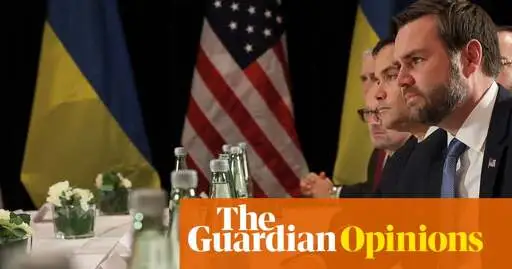Thing is that you can't shoot money. EU tried to ramp up their shell production, and it was an utter failure. Russia is able to produce 3x the shells of all the west combined, and US is by far the biggest western producer. Meanwhile, Europe has consistently struggled to supply even modest arms packages. This is a sobering read on the reality of the situation.
European militaries are in a deplorable state. Here's what things look like in UK right now.
- There are now fewer than 75,000 of active troops in Britain. The UK could feasibly deploy at most a brigade, between 3-5,000 troops, and a Corps level Headquarters which would probably be needed, for between 24-36 months.
- The housing program for the military is dreadful. Equipment programmes are always delayed and overbudget, and often produce dreadful kit. Often enough there is no kit at all.
- Much of the artillery regiments have no weapons and/or very little ammunition, everything having been sent to Ukraine and only a few replacements obtained.
- Many regiments and battalions are still using obsolete equipment while they wait for new vehicles that should have been delivered long ago.
France and Germany aren't much different, and these are the major military powers in Europe.
You also seem to be labouring under the delusion that Europe is unified as a single country which it is not. Russia has a state owned industrial complex that is able to produce massive amounts of weapons cheaply. Europe is a bunch of different countries with privatized military industries that produce weapons on artisanal scale.
There is absolutely nothing easy about ramping up military production. Producing things like steel is an energy intensive process, and Europe is in an energy crisis right now. Hence it's very difficult for Europe to do serious military production on its own.
The reality is that Europe’s looming loss of the US security umbrella exposes a web of existential vulnerabilities, none of which can be resolved quickly or painlessly. The sheer scale of rebuilding self-sufficiency is a decades-long overhaul with no guarantee of success.
First problem is that Europe imports 60% of its energy, with natural gas prices already inflated by post-Ukraine war sanctions and the loss of Russian pipelines. Transitioning to domestic renewables or reviving nuclear power would require trillions in infrastructure investment into grids, storage, and reactors.
As a concrete example, Germany’s Energiewende, launched in 2010, has only reduced fossil fuel use by 15%. Additionally, solar infrastructure relies on lithium and cobalt dominated by China. Without access to cheap energy, Europe faces either energy rationing or permanent deindustrialization as factories relocate to cheaper markets.
Having outsourced its military-industrial capacity to the US, Europe now has to rebuild domestic arms production. Doing so requires massive investments in establishing supply chains and retooling of civilian sectors. However, decades of offshoring has eroded existing technical expertise in Europe. Just training a new generation of engineers and machinists could take a whole generation. Furthermore, creating self-sufficient supply chains is a difficult process with many steps, each step depending on the previous one. A single bottleneck, such as missing rare-earth refinery, can derail entire sectors for years.
Another problem is that Europe lacks domestic access to steel, titanium, and rare earths, forcing further reliance on external suppliers like China. Even if Europe started today, it would take decades to see tangible results, and that’s assuming political unity holds.
The EU member states disagree on everything from debt sharing to defense priorities. Eastern Europe demands immediate rearmament, Germany resists militarization, and France pushes for strategic autonomy. Meanwhile, nationalist parties are gaining ground, threatening to fragment the bloc further. Even if consensus emerged, funding this transition would require further cutting social programs, which is political suicide in countries already reeling from inflation and austerity.
Europe’s security crisis is a slow-motion collapse. There are no shortcuts to untangling energy dependency, reviving industry, or forging supply chains. By the time Europe might achieve autonomy, economic and geopolitical forces might make the whole EU project obsolete.
The funny part about all this is that the notion that Russia would militarily occupy Europe has always been a pure fantasy. However, what’s absolutely certain is that Russia will exploit the political chaos in Europe caused by collapsing living standards, a crisis Europe itself created.
The most likely outcome here is that countries like Hungary and Slovakia exist the EU, and normalize relations with Russia. They might even join BRICS. And that may even happen with the pillars of the EU like France and Germany when RN or AfD inevitably get in power.

